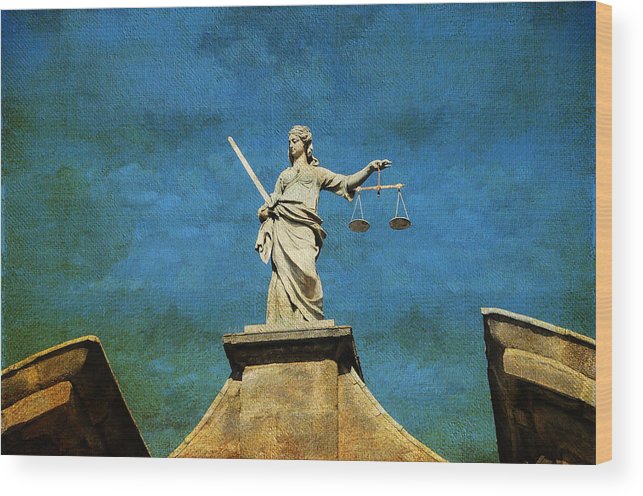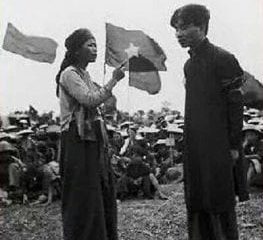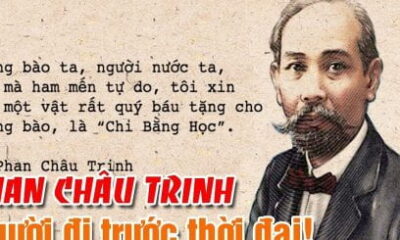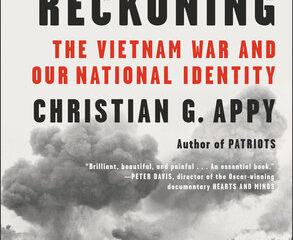Download pdf
Abstract
This essay examines a critical turning point in Vietnam’s legal history during the late 1940s, focusing on the tension between judicial independence and administrative control. It analyzes President Ho Chi Minh’s 1948 directive urging the judiciary to “unify” with the administration, marking a departure from earlier republican ideals of judicial autonomy enshrined in Decree No. 91-SL (1947) and the 1946 Constitution. I focus on the debates at the National Judicial Conference (February 1948), where judicial leaders resisted full administrative control, advocating for limited political oversight while maintaining judicial independence. By contrasting Ho Chi Minh’s call for administrative-judicial unity with earlier republican views emphasizing the necessity of institutional conflict for democratic governance, I show the ideological shift that redefined Vietnam’s legal framework. This moment marked the erosion of judicial autonomy, setting the stage for the consolidation of state power under a unified, socialist legal system.
Keywords: Vietnam, legal thought, Republicanism
Editor’s Note: The following is one installment of a five-part essay series by Nguyen Luong Hai Khoi, which details the history of legal thought in Vietnam from 1945 onward. This series was originally posted on our Vietnamese language site in 2019 and has been translated here by our English editor Vinh Pham.
A History of Legal Thought 1945 – 1956
Part 1: Republican Spirit 1946
Part 2: The February 1948 Letter – Law Must “Unite” with Administration
Part 3: The Attack of the Communists
Part 4: Responding to the Ideal of “Independent Judiciary,”
Part 5: Ho Chi Minh’s Legal System after the 1948 Debate
On October 1, 1947, President Ho Chi Minh issued Decree No. 91-SL, merging two institutions, the “Resistance Committee” and the “Administrative Committee,” into a unified entity called the “Resistance-Administrative Committee.” These two institutions had been established after September 2, 1945, and operated independently.
From February 25 to 27, 1948, the judicial sector organized the National Judicial Conference. The main focus of the conference was to determine the “position of the judicial sector” within the political system following the merger of the “Resistance Committee” and the “Administrative Committee.”
The conference was attended by most judicial leaders, including Vũ Đình Hoè, the Minister of Justice (Conference Chairman); Trần Công Tường, the Deputy Minister of Justice (Vice Chairman); Vũ Trọng Khánh, Director of Judicial District 10; Phạm Ngọc Hải, Director of Judicial District 12; Trần Chánh Thành, Director of Judicial District 3; Nguyễn Huy Đẩu, Director of Judicial District 1; and over ten other directors and deputy directors of various judicial districts.
Judiciary Must “Unify” with Administration
President Ho Chi Minh wrote a letter to the conference, providing guidance against the concept of “judicial independence,” urging that the judiciary be tied to the “administration.” He stated:
“You are intellectuals. You have a heavy responsibility and a noble role in guiding the people in all matters… The judiciary is a crucial agency of the government, so it must be tightly united and cooperate closely with other agencies to avoid mutual conflicts. It should not, for small and personal gains, harm the greater and collective interests, both for the judiciary and administration.”
In this letter, Ho Chi Minh employed a two-step rhetorical strategy. Firstly, he redefined the concept of “intellectuals” to signify those with specialized training in a certain field, equating them to the Confucian notion of virtuous individuals who have a “heavy responsibility and a noble role” of being an example for the people. Building on this, Ho Chi Minh proceeded with the second step, employing ethical terms such as “unity,” “cooperation,” “small and personal gains,” and “greater and collective interests” to the realm of law, in effect binding the judiciary to the administration.
Ho Chi Minh deliberately avoided using the terminology of the judicial sector when addressing experts who had received formal training in law. The requirement for the judiciary to “unify” and “cooperate closely” with the administration raises questions about its true nature. From the standpoint of an independent judiciary operating under the principles of judicial independence, these terms become meaningless. However, Ho Chi Minh’s intentions are clear to the reader: he interpreted “unity” as avoiding “mutual conflicts,” thereby implying that the judiciary must “adhere to” the decisions of the administration.
To grasp the significance of the turning point in the concept of “unity” between the judiciary and administration in Ho Chi Minh’s directive of February 1948, one must revisit the understanding of the previous revolutionary generation under French colonial rule regarding the role of “conflict” between the three branches of executive, judicial, and legislative power in the construction of a democratic system.
Huỳnh Thúc Kháng, a former leader of the Duy Tân movement, Director of the Central Assembly Institute, and Head of State during Ho Chi Minh’s visit to France, remarked in a speech at the Central Assembly Institute on October 1, 1928, that if the Assembly (legislative) always agreed with the Resident Superior Council (executive), then “the name of ‘people’s representative’ would truly be a new bureaucratic title” (Nguyen Q. Thang, “Huynh Thuc Khang – The Person and Poetry”, Saigon, 1972, p. 324). He further explained the essence of “conflict” between the branches of power in his article “A Few Personal Thoughts” published in Tiếng Dân newspaper after resigning:
“The legislative stage is a platform where the people and the government conflict with each other, as is the case in every country. Today, under the rule of an autocratic regime, the national spirit has not been expanded, and such dramatic conflicts have not been witnessed. Even though there are advisory councils here and there, I view them as gatherings to praise and talk aimlessly. Just three years now, according to a new treaty, people have the right to participate in politics, and with the proceedings of 1926, it is genuinely a novelty in this land” (In footnote: Nguyen Q. Thang, Ibid, p. 330).
Thus, for Huỳnh Thúc Kháng, the “conflict” of views between the three independent branches of power – judiciary, executive, and legislative – is one of the criteria distinguishing a democratic political system (“people’s representative”) from a disguised feudal regime (“The Bureaucracy”). The arguments of Huỳnh Thúc Kháng, an intellectual figure of the old education system, in the late 1920s illustrate a significant change in thinking among the contemporary Vietnamese elite compared to the feudal era. This shift in mindset led them to reject and be unable to accept the reasoning of previous generations.
The response of the judicial sector: Upholding “independence”
Regardless of the directive letter from President Ho Chi Minh instructing the judiciary to “unify” with the administration, the National Judicial Conference of February 1948 reaffirmed the independence of the judicial system. The website of the Ministry of Justice of Vietnam reposted this resolution in the article “What Did the Fourth National Judicial Conference (February 1948) ‘Declare’ After Receiving President Ho Chi Minh’s Letter” (published on June 16, 2014, accessed on November 1, 2019). According to the recorded resolution, Mr. Phạm Ngọc Hải, Director of Judicial District 12, posed the following question:
“Until now, when the Administrative Committee and the Resistance Committee were separate, everyone agreed on the principle that the judiciary depended on the Resistance but was independent from the Administration. Now, according to Decree No. 91, Article 2, the Resistance and Administrative Committees are merged.
So, how can the principle of judicial independence from the administration be upheld?
In reality, administrative members within the Resistance-Administrative Committee, on behalf of the committee, supervise all work and control all agencies in the district.
Regarding other specialized agencies, there is no issue because they depend on the administration. However, in the case of the judiciary, the administrative member’s control over the court makes the judiciary dependent on the administration, contrary to the principle mentioned above.
So, how should this issue be resolved?“
To address the issue raised by Mr. Phạm Ngọc Hải, the entire conference decided on the following course of action:
- The judicial authority should be under the control of the Resistance-Administrative Committee, not under the control of the administrative member of this committee. Therefore, only the Chairman of the Resistance-Administrative Committee, representing the committee, has the authority to control the judicial agencies.
- Control involves examining the general approach and the political aspects of the work, rather than interfering with the specialized scope of the judicial agencies.
Thus, the leaders of the judicial sector accepted the control authority of the Resistance-Administrative Committee, but only over the “general approach” on the “political” aspect, and they did not accept the judicial agencies being interfered with in their “specialized scope.”
This resolution of the Judicial Conference did not follow President Ho Chi Minh’s directive that the judiciary must “unify” and “cooperate closely” with the administrative agencies. Here, we see the seeds of the first ideological conflict. However, just over a month later, this minor conflict was officially pushed to an irreconcilable point.
References
Sherry Jr, Vincent J. The evolution of the Legal System of the Republic of Vietnam . The University of Southern Mississippi, 1973
Tuan, H. P., Nguyen, C., Nguyen, D. L., Khôi, N. L. H., Nguyen, M. T., Minh, N. T., … & Zinoman, P. B. (2022). Building a republican nation in Vietnam, 1920–1963. University of Hawaii Press.
Nguyen, M. T. (2022). The Self-Reliant Literary Group and Colonial Republicanism in the 1930s. Building a Republican Nation in Vietnam, 1920–1963, 61.
Thuy Nguyen; Exploiting Ideology and Making Higher Education Serve Vietnam’s Authoritarian Regime. Communist and Post-Communist Studies 1 December 2022; 55 (4): 83–104. doi: https://doi.org/10.1525/cpcs.2022.1819231
Zinoman, P. (2013). Vietnamese colonial republican: The political vision of Vu Trong Phung. Univ of California Press.
Vu, Tuong and Nguyen, Thuy. “Chapter 1 “Doi Moi” but Not “Doi Mau”: Vietnam’s Red Crony Capitalism in Historical Perspective”. The Dragon’s Underbelly: Dynamics and Dilemmas in Vietnam’s Economy and Politics, edited by Nhu Truong and Vu Tuong, Singapore: ISEAS Publishing, 2022, pp. 25-50. https://doi.org/10.1355/9789815011401-003
Kim, T. T. (2022). Early Republicans’ Concept of the Nation. Building a Republican Nation in Vietnam, 1920–1963, 43.

 Politics & Economy4 years ago
Politics & Economy4 years ago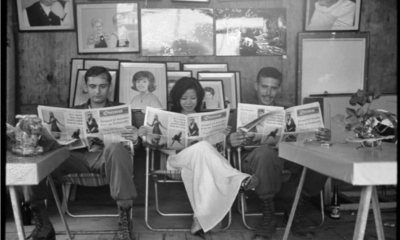
 Politics & Economy2 years ago
Politics & Economy2 years ago
 After 19751 year ago
After 19751 year ago
 ARCHIVES5 years ago
ARCHIVES5 years ago
 Society & Culture5 years ago
Society & Culture5 years ago
 Politics & Economy4 years ago
Politics & Economy4 years ago
 Politics & Economy5 years ago
Politics & Economy5 years ago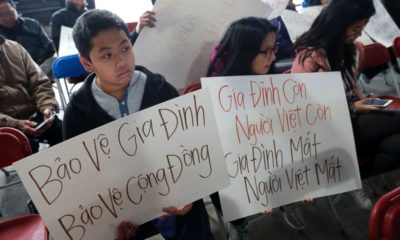
 Vietnamese-America4 years ago
Vietnamese-America4 years ago
